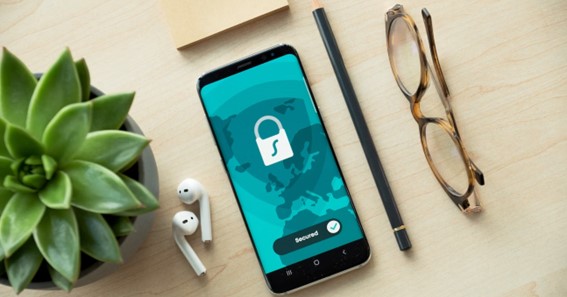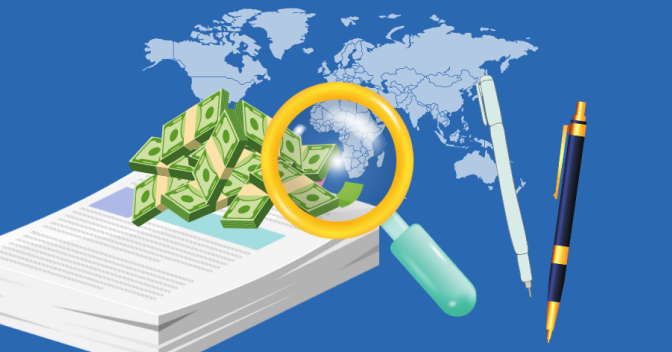Online threats can threaten your livelihood and, in some scenarios, even your physical safety. A person can find your location via IP, and there have been casualties during swatting incidents. People can amass massive amounts of debt in your name or even commit crimes using your identity.
In other words, the threats are there and are much more severe than many people realize.
The only way to be 100% safe from online threats would be to stop using the internet completely. Since this is not a serious option, you must find other ways to protect yourself in a digital era. Here are the top five ways you can protect yourself online.
-
Be more serious about your passwords
You need to start by learning how to make better passwords.
Many people see their ability to memorize passwords as a major problem, so they choose something they’ll never forget. For instance, they pick their pet’s name as their password.
Now, for the sake of this argument, let’s go full cliche and say that you have a dog named Spot. So, the natural password you pick is Spot1 (let’s say the policy requires you to have an upper case and a numeral).
Someone who doesn’t know your dog will never figure it out, right? Well, all it takes is for them to go to your Facebook and see a photo captioned “Spot’s 3rd birthday” or “Me and Spot out for a walk.”
That’s all it takes; your password is not a matter of public knowledge.
So, why did we use “be more serious” instead of “make stronger passwords?” Because making stronger passwords is just a part of the solution. You also want to change the way you view your passwords.
Some people never change their passwords, which is generally not a great idea. Ideally, you want to change a password (at least) every 90 days. This will drastically impact your safety in the digital world and help you stay much safer online.
Also, be careful what you share, both online and offline. You would be surprised to learn that you’re far less conspicuous than you believe. Moreover, it takes just a fragment of information for others to figure out what you are doing.
-
Start using VPN
The next thing you need to do is conceal your online activity with the help of a VPN. Fortunately, there are a lot of great options, and finding the right one is just a matter of preference.
Some of these VPNs offer a free version, but paying for a premium version is definitely worth it for someone who spends a lot of time online.
So, why is this such a good idea?
Right off the bat, VPN conceals your internet connection and hides your IP address during your online activities. If someone has access to your IP address, they can find out your physical location, which is a concept that may chill you to your core. The last thing you want is some internet psycho to have your physical address.
Another disturbing thing they could do with your IP is launch a cyberattack. If you’re making money off your online activity, this could even put your livelihood at risk. They could gain access to your personal information and even your financial information.
Apart from this, a VPN can help you get a good look at the other side of the fence.
It’s well-known that retailers and service providers have different prices for people from other regions (depending on the local standard). Why pay more if you don’t have to?
Some content, like movies and shows, is restricted based on your region, and with a VPN, you can access it easily. Also, you can use VPN to avoid government censorship.
-
Update your software and use an antivirus
Most software is safe; however, if you skip a few updates, it will start lagging. Developers are constantly updating their tools, fixing bugs, and plugging gaps in their code; ignoring their hard work is disrespectful and irresponsible. It also puts you at unnecessary risk. So, in this section, our first tip is to ensure that all your software is updated before you start using it.
Second, you want apps that can protect you in a digital world. What you need are:
- Antivirus
- Anti-malware
- Password manager
- Ad blocker
- Two-factor authentication
- Secure communication
Finding an app for each task is relatively easy; some provide most in a single package.
You need to use antivirus on all your devices. For many people, using an antivirus on their PC is a default; however, what about their smartphone? Failing to protect your phone is outright reckless since you probably have more personal data on this device.
Also, you’re not just putting yourself at risk. A lot of companies have a BYOD policy. This means that you’re accessing company data via your devices. This is always true if you’re a remote (or hybrid) worker. Now, some companies require you to have an antivirus installed and that you protect your devices in other ways before allowing you to use personal devices for work. Others just fail to consider this. So, you must remember.
-
Learn more about phishing
Phishing is probably the single biggest cyber threat out there. While it’s not the only danger of the online world, by just learning how to recognize a phishing attack, you’ll have a much easier job keeping yourself safe online.
Malicious parties across the globe are sending about 3.4 billion spam emails daily. The problem is that Google can only block about 100 million of these emails per day, which almost makes no difference. In other words, you need to protect yourself.
So, what is phishing?
This is a type of attack where you get a message (via email, social media post, SMS, or DM) that seems to be from a legitimate source. Let’s say it’s your bank or PayPal sending you an email with a link to follow or an attachment to download. Sometimes they’ll outright ask for personal information (like a credit card number or your social media number).
While the latter (asking for private info) seems suspicious from the start, you would be surprised at just how easy it is for some people to fall for it.
On the other hand, links are problematic because they seem almost authentic.
There are a few things you can do about this. First, you can be suspicious about unsolicited emails. Second, you don’t have to follow the link. You can always just go to your browser and start from there. If it’s your bank or PayPal, there should be no difference, right?
Verifying the authenticity of emails is time-consuming but vital for survival in the digital world.
-
Be careful with Wi-Fi use
The last thing you need to remember is the importance of Wi-Fi use. Connecting to an unsecured network will compromise your entire online activity. This is why you must be very careful when and where to access it.
A home network is usually secure, but this is not a given. The thing is that you need to make a strong password and regularly change it.
Second, even though it’s your home network, you want to use a strong firewall.
Lastly, be very careful when using public Wi-Fi networks. If you have to use them, avoid using banking services there.
While this is a common sense tip, the problem is that avoiding Wi-Fi in today’s world is not as simple or practical as you think. Also, people with access to the internet just impulsively access apps without considering whether they’re banking or social media apps.
Protecting your online presence is the key to survival in a digital era
In the end, while all of these tips are common sense, they’re not nearly as intuitive as you may think. This means you have many theories to learn and many new habits to adopt. Improve your password habits, be careful when using public networks, don’t open suspicious links, and start using VPN. On its own, this should help elevate your safety to a whole new level.



